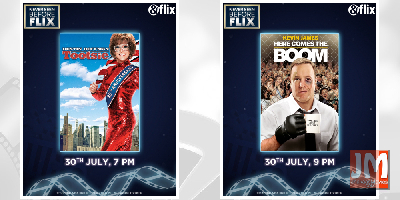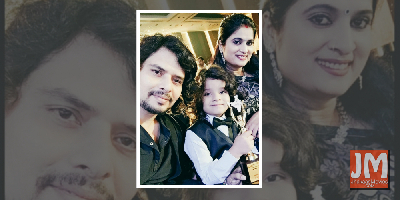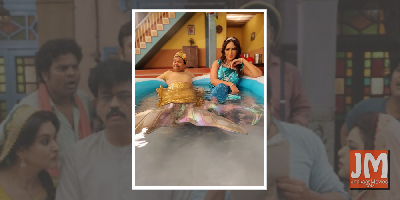 Aan Tiwari honoured with Best Child Actor award for Baal Shiv
Aan Tiwari honoured with Best Child Actor award for Baal Shiv Ghategi rahasymayi ghatnaye!
Ghategi rahasymayi ghatnaye! Amazon Prime Video unveils the 2021 Festive Line-up; brings a heady mix of Indian and International titles on the service
Amazon Prime Video unveils the 2021 Festive Line-up; brings a heady mix of Indian and International titles on the service Release: Music video of, Yeh Haalaath, from Mumbai Diaries 26-11
Release: Music video of, Yeh Haalaath, from Mumbai Diaries 26-11 Bhumi Pednekar feels she shares feel-good value with Akshay Kumar on screen
Bhumi Pednekar feels she shares feel-good value with Akshay Kumar on screen
'The Current War': Far from electrifying

By Troy Ribeiro
"The Current War"; Cast: Benedict Cumberbatch, Michael Shannon, Nicholas Hoult, Katherine Waterston, Tom Holland, Stanley Townsend, Matthew Macfadyen, Tuppence Middleton, Damien Molony; Direction: Alfonso Gomez-Rejon; Rating: * * and 1/2 (two and a half stars)
"The Current War", based on true events, is a period drama about the greatest inventors of the nineteenth century industrial age -- Thomas Edison (Benedict Cumberbatch) and George Westinghouse (Michael Shannon). It captures the passion, charisma and genius of these visionaries. It also throws a light on the advent of commercial and domestic electrical systems during that era.
Set in the 1880s, the film tells us about how the duo engaged in a battle of technology and ideas to determine whose electrical system was superior. While Edison ruthlessly promotes his direct-current technology, George Westinghouse sees the limitation in Edison's work, so he begins working successfully with alternating current, allowing him to forge ahead in the game of supremacy.
The complicated lives and work habits of these two innovators reflects a lot of what we see in today's complex entrepreneurs. You admire them for their foresight to change the course of history and connect the world with their revolutionary ideas. Then you begin to discover, how they, at times, betray their own principles and make this mostly about winning a game.
Benedict Cumberbatch plays Edison with the same fast-talking manner he seems to adopt in all his American roles. It feels anachronistic given the nineteenth century setting, a contrast from Michael Shannon's statesmanlike George Westinghouse, resplendent with a handsome moustache. For what it's worth, Tuppence Middleton gets a raw deal as Mary Stilwell Edison -- the inventor's supportive but neglected wife, whose untimely death barely affects him. Katherine Waterston fares a bit better as Westinghouse's wife, Marguerite Erskine.
The other characters in the tale are: Edison's stuffy banker JP Morgan, played by Matthew Macfadyen; Westinghouse's collaborator and friend, the electrical engineer Franklin Pope, portrayed by Stanley Townsend; Nicholas Hoult as the brilliant inventor and Siberian immigrant Nikola Tesla; and Tom Holland as Edison's perky assistant Samuel Insull.
The plot juggles with so much information that it speeds through history with a series of events that makes the narrative appear rushed and confusing. Also an insight into Westinghouse's moral drive, rooted in a traumatic Civil War experience, revealed in hazy, fragmented flashbacks, is unwarranted. It does not create the required impact on the story.
The film is mounted with ace production values. The era is aptly recreated by production designer Jan Roelfs and captured by cinematographer Chung-Hoon Chung. But there are times when Chung unnecessarily goes overboard with distorted images.
Due to lack of any dramatic tension, the film does try to spark energy into the narrative through David Trachtenberg's frenetic editing. The jump cuts, the transitions and the layering of the continuous soundtrack along the visuals does boost the chronicle momentarily.
Overall, the film fails to capture the inciting moments in the lives of the inventors, and thus, despite ending on a stirring note, is tame and unfulfilling.








